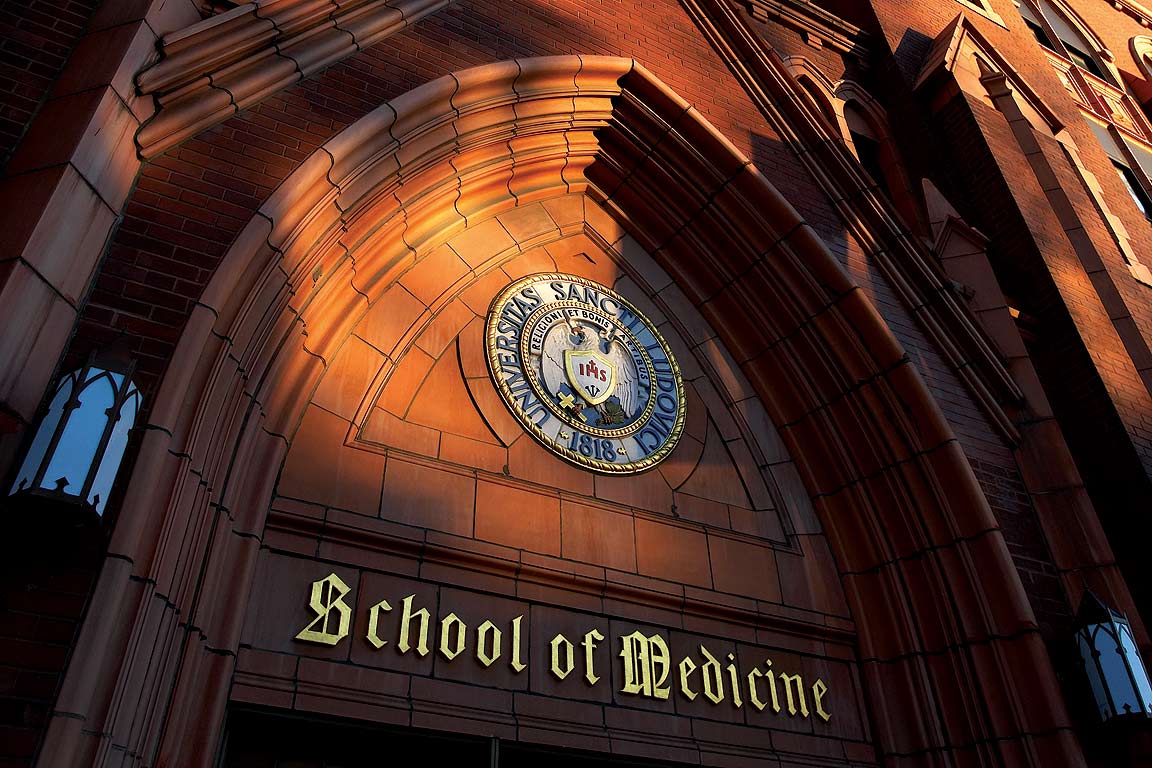Saint Louis University Joins the National Academy of Medicine in Commitment to Countering the Opioid Epidemic
Maggie Rotermund
Senior Media Relations Specialist
maggie.rotermund@slu.edu
314-977-8018
Reserved for members of the media.
Saint Louis University joins the National Academy of Medicine (NAM) and more than 100 other organizations to declare a commitment to reversing national trends in opioid misuse and overdose. The announcement was made at a meeting of NAM's Action Collaborative on Countering the U.S. Opioid Epidemic.
The 100-plus partner groups include community organizations, hospital and medical systems, academia, nonprofits and health professional societies. The full list of organizations is available at nam.edu/OpioidNetworkOrgs.
SLU is establishing a Center for Substance Use Disorders and Pain Management, which will support and advance excellence in education, research, clinical care, community engagement, public policy and health equity, says Fred Rottnek, M.D., professor of family and community medicine.
“The Center exemplifies the mission of a Catholic Jesuit research institution of higher education with a flagship university medical practice,” said Rottnek. “The center includes research, education, practice and service. This requires us to confront stigma and institutional racism and health inequities and to promote the health of individuals, families and communities.”
“SLU is a perfect set-up for addiction medicine because we have people working in each of those areas that we can say, ‘Okay, how do we keep building upon this expertise to find out how to help people thrive?’” Rottnek said.
The Center for Substance Use Disorders and Pain Management team includes Rottnek; Jennifer Bello Kottenstette, M.D., assistant professor of family and community medicine; Liz Chiarello, Ph.D., assistant professor of sociology; David Pole, Ph.D., assistant professor of family and community medicine and director of the Center for Interprofessional Education and Research; Daniela Salvemini, Ph.D., professor of pharmacology and physiology and director of the Henry and Amelia Nesrallah Center for Neuroscience; Jeffrey Scherrer, Ph.D., professor and research director of family and community medicine; and Jaye Shyken, M.D., associate professor of obstetrics, gynecology and women’s health and medical director of the WISH Center.
The number of opioid-related deaths — from both prescription opioids and illegal drugs including heroin, fentanyl and carfentanil — has quadrupled in the last 20 years. At present, the opioid epidemic claims 130 lives every day.
“The opioid epidemic is one of the most devastating public health crises of the modern era, impacting individuals, families, and communities across the nation,” said National Academy of Medicine President Victor J. Dzau.
“The complexity of this crisis requires sustained commitment from all stakeholders: health systems, federal and state governments, community organizations, provider groups, payers, industry, nonprofits, and academia. Reversing the opioid epidemic requires a multi-sectoral response — no organization, agency, or sector can solve this problem on their own.”
To provide an opportunity for organizations to discuss and share plans of action, the NAM recently called for and has collected statements describing current work and future goals to counter the opioid epidemic in the areas of health professional education and training; opioid prescribing guidelines and evidence standards; prevention, treatment, and recovery; and research, data, and metrics.
Founded in 2018 in collaboration with the Aspen Institute, the Action Collaborative on Countering the U.S. Opioid Epidemic is a public-private partnership committed to developing, curating and disseminating multi-sector solutions designed to reduce opioid misuse and improve outcomes for individuals, families, and communities affected by the opioid crisis.
The National Academy of Medicine, established in 1970 as the Institute of Medicine, is an independent organization of eminent professionals from diverse fields including health and medicine; the natural, social, and behavioral sciences; and beyond. It serves alongside the National Academy of Sciences and the National Academy of Engineering as an advisor to the nation and the international community. Through its domestic and global initiatives, the NAM works to address critical issues in health, medicine, and related policy and inspire positive action across sectors. The NAM collaborates closely with its peer academies and other divisions within the National Academies of Sciences, Engineering, and Medicine.
Established in 1836, Saint Louis University School of Medicine has the distinction of awarding the first medical degree west of the Mississippi River. The school educates physicians and biomedical scientists, conducts medical research, and provides health care on a local, national and international level. Research at the school seeks new cures and treatments in five key areas: cancer, liver disease, heart/lung disease, aging and brain disease, and infectious diseases.


















